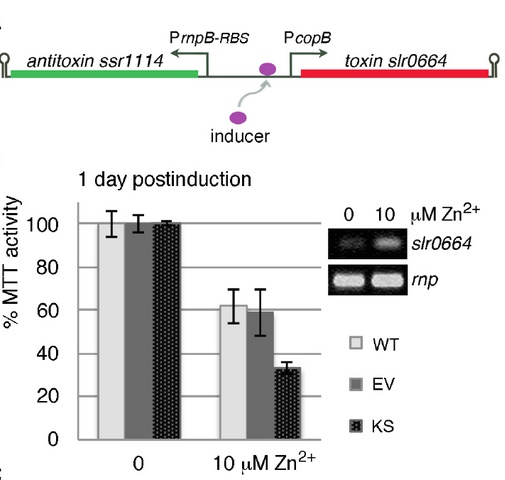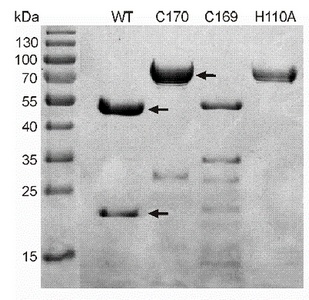
Cyanobacteria might hold
answers to many important questions about life and our
future. They provide oxygen we breath, but they also cause
harmful algal blooms. They can grow quickly on not much more
than sunshine and water, so they are ideal for biotech
applications as well. Our research is focused on their
molecular biology, but also on their environmental
importance and on improving these organisms towards safe use
in biotechnology and synthetic biology.
Research
We have interest in several topics related to cyanobacterial biology, from their occurrence in natural habitats, their molecular biology and biochemical properties, to biotechnology applications.
-
Ecology
We believe our knowledge of cyanobacteria in the environment is very limited. What promotes expansion of some species and not other? Can we differentiate between very similar unicellular cyanobacteria? We have new tools to investigate this.
-
Synthetic biology

We are building genetic devices for improved biosafety of cyanobacteria. If they ever escape controlled environment where they are grown, we should be able to induce cell death of these cells specifically.
-
How cyanobacteria die

Cyanobacteria might have a very intricate network of molecules that respond to environmental conditions and can trigger a programme of self-destruction. Some of the enzymes are related to plant and human proteins involved in apoptosis.